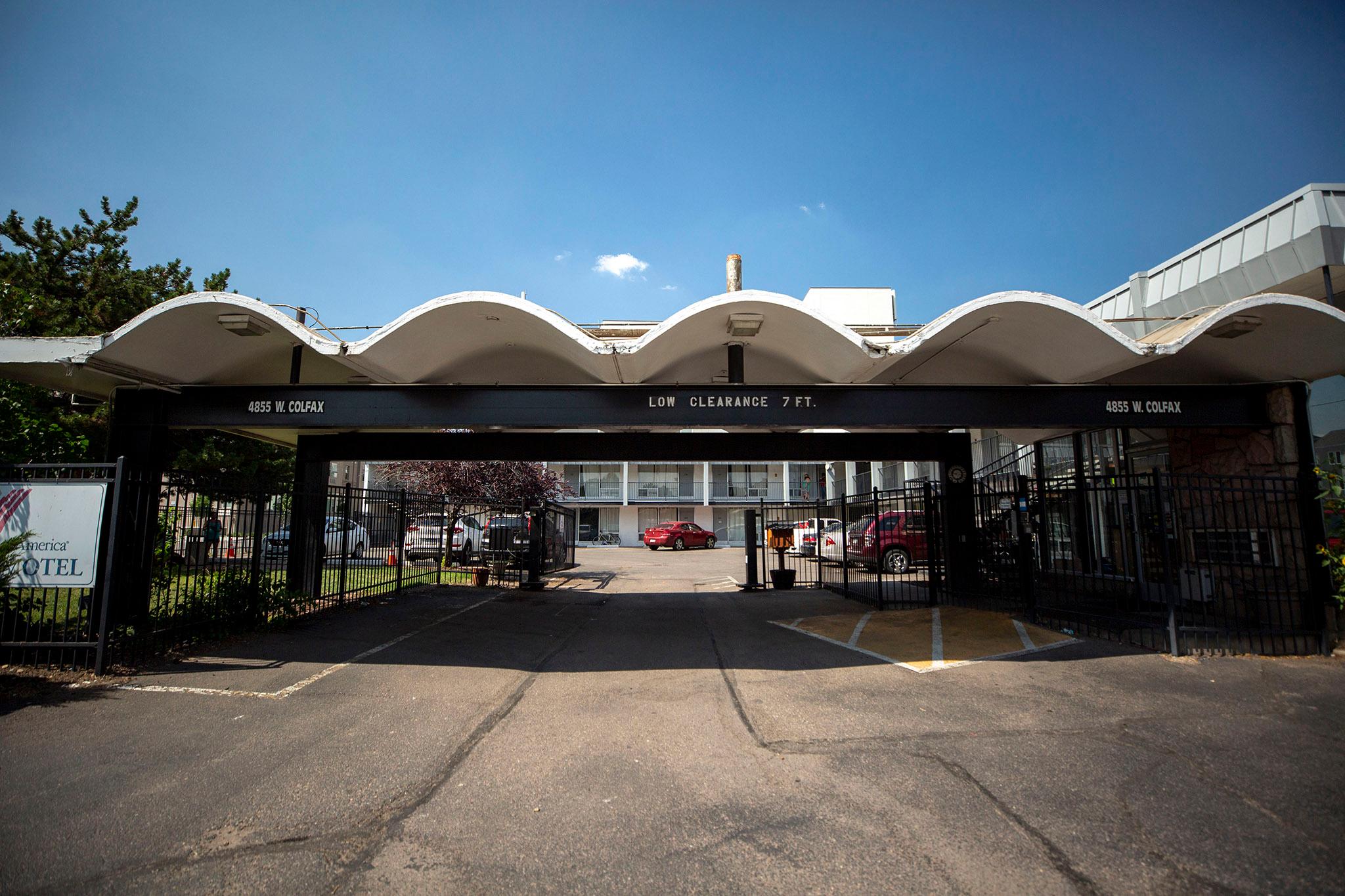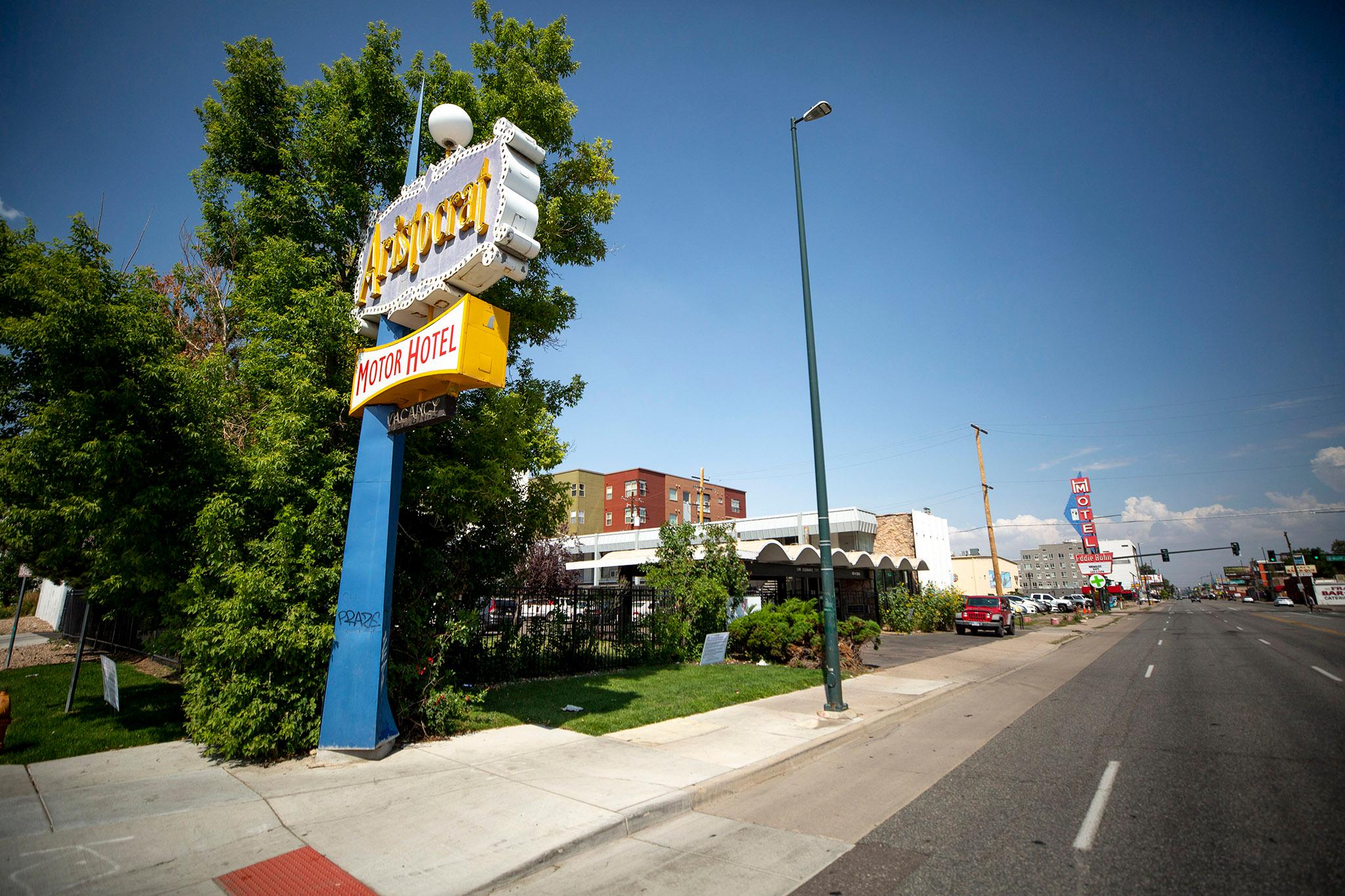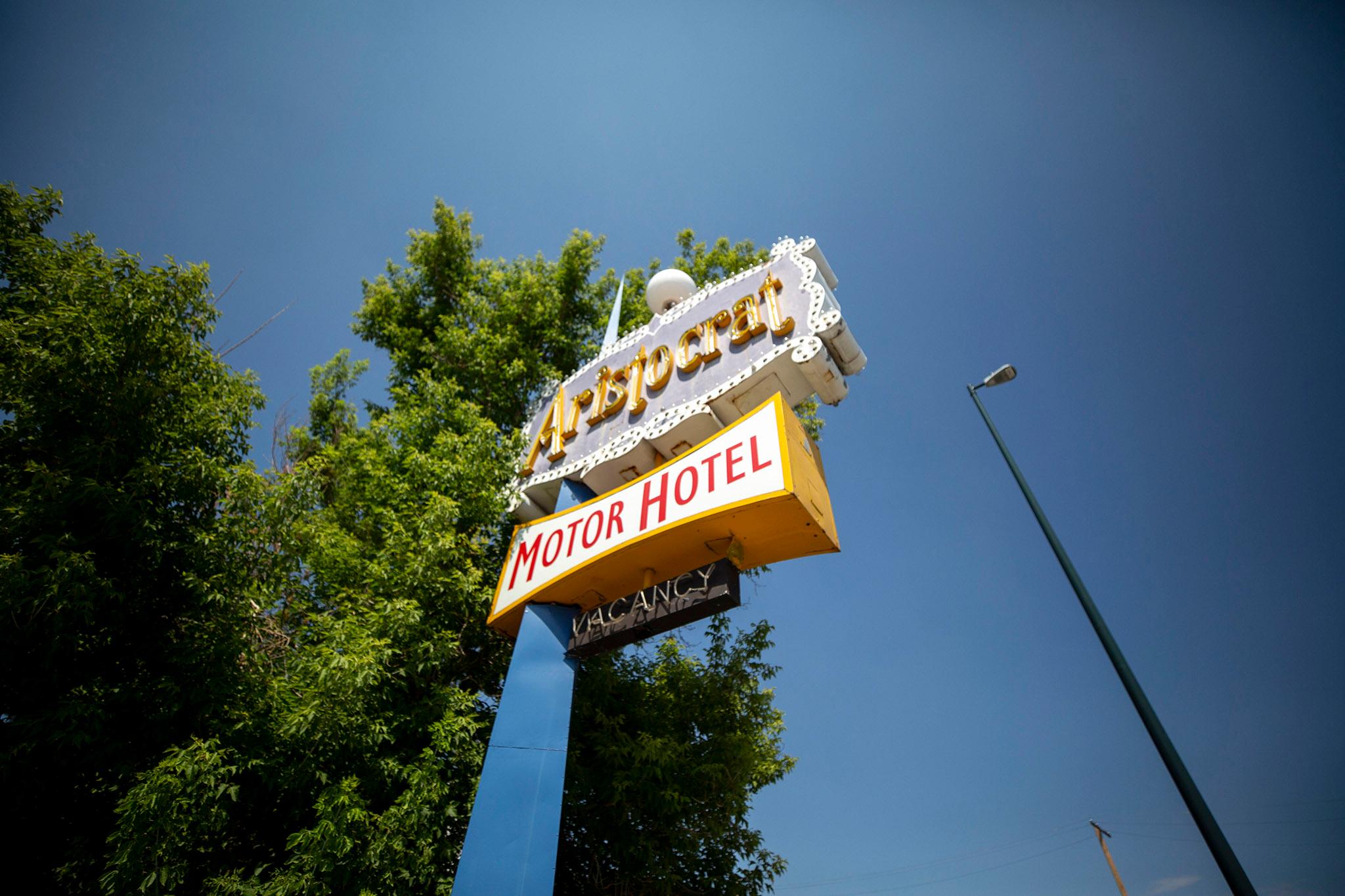Volunteers of America Family Motel, a shelter for unhoused people, may be the center of the next debate over how Old Denver should influence the Denver of today.
You might recognize the place at 4855 W. Colfax Avenue by its cartoonish, retro sign -- a remnant of when the property was known as the Aristocrat Motor Hotel. Volunteers of America bought the property in 2001. It maintains 40 rooms for veterans and people recovering from hospital visits who have nowhere else to live with help from the city's housing department.
Almost 1,500 people stayed at the motel between March 2020 and March 2021, according to Volunteers of America.
Now the nonprofit wants to expand the shelter, though it's unclear by how much. If plans move forward, the group could apply for tax dollars designated to treat homelessness, passed by voters in 2020.
But it's still early, Volunteers of America spokesperson Vanessa Clark said.
"It feels to us like the appropriate time to tear down the hotel and build something, hopefully bigger, that can address the crisis when it comes to helping families who are experiencing homelessness," Clark said. "But it's just something we're exploring."

The 60-year-old cinder block building may be worth preserving, according to Denver Community Planning and Development. To start the expansion, Volunteers of America asked the city if they could raze the building -- the first step in a long redevelopment process that triggers a study of the property's historical significance.
The planning department found that the property is eligible for preservation. Researchers cited the property's mid-century motel features: outdoor hallways, a wavy roof in the googie architecture style, and even "a large parking lot." The flashy sign is "of particular import," according to the study, which highlights the role that "car culture" played in the motel's development.
Though the building is eligible for preservation, that doesn't mean it'll stay standing.
Anyone who wants to protest the demolition would have to apply for a landmark designation on behalf of the Aristocrat by August 16, according to the planning department's rules. The Denver City Council would then have to approve the designation after a public process.
A compromise is another possibility, said Denver Community Planning and Development spokesperson Laura Swartz. For instance, rules allow the sign to remain even if the building doesn't, she said, or the old building could be melded with a new one.
"We don't look at things as binary as demolition, or (historic) designation," Swartz said. "The whole intent is to have a better community conversation about how we want our spaces to adapt and what we want to retain about them."

A recent change to Denver's historic preservation rules created more room for compromise, she added.
The city council last took up a debate like this in May, when legislators unanimously killed a citizen-led bid to preserve the brutalist Denver7 building on Speer Boulevard. Three residents had filed paperwork to safeguard the structure -- against the owner's wishes -- via historic designation.
In 2019, a similar Denver-famous debate over Tom's Diner ended outside of the government arena. An early compromise with developers showed that the historic building could have remained, even if it was adapted into a new development. But the owner decided to preserve the building, which was also in the vein of googie-style, on East Colfax Avenue.
Volunteers of America's West Colfax shelter offered extended stays "before it was the cool thing to do," said Angie Nelson, deputy director of housing, stability and homelessness for the city's housing department.
Denver's city government has helped fund the VOA's operations for a long time, and its own strategy to reduce homelessness now includes a focus on families and long-term shelter.
"So, moving from a model that was overnight-only, and kind of a crisis response-only model," Nelson said, "and instead giving people the dignity of a bit of space, a bit of predictability of where they're sleeping each night, the ability to stay put during daytime hours so that they can access case management and supportive services."













